Bill requiring school board candidates to state partisan affiliation awaits Indiana governor's signature
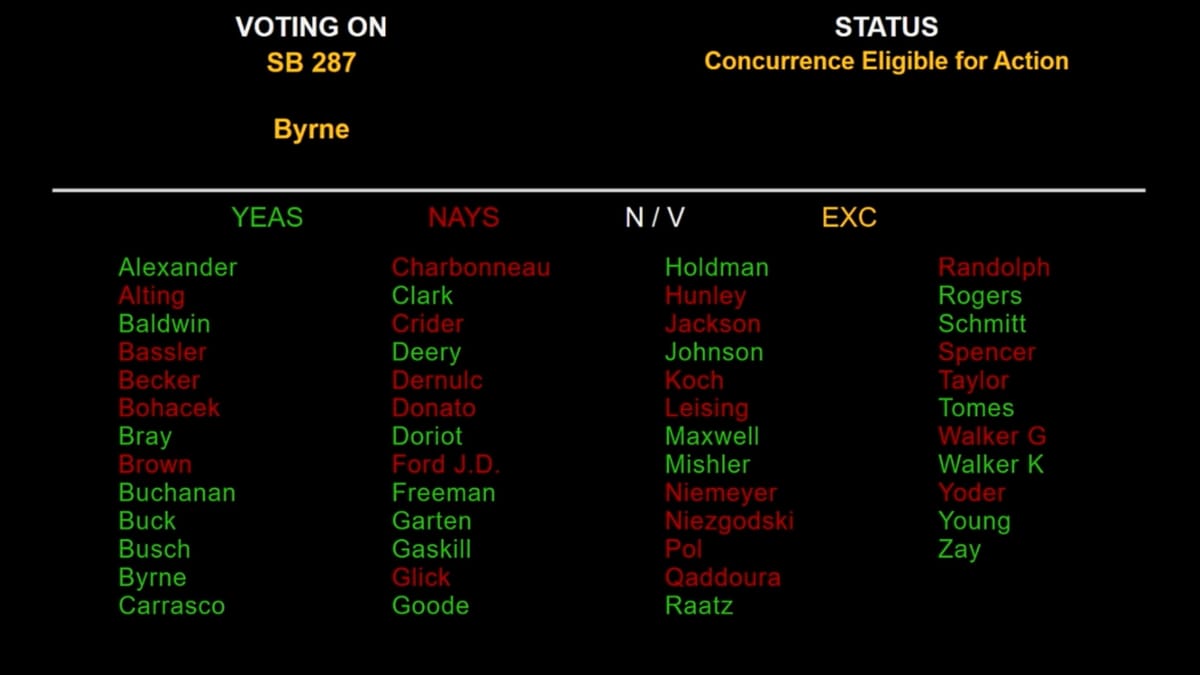
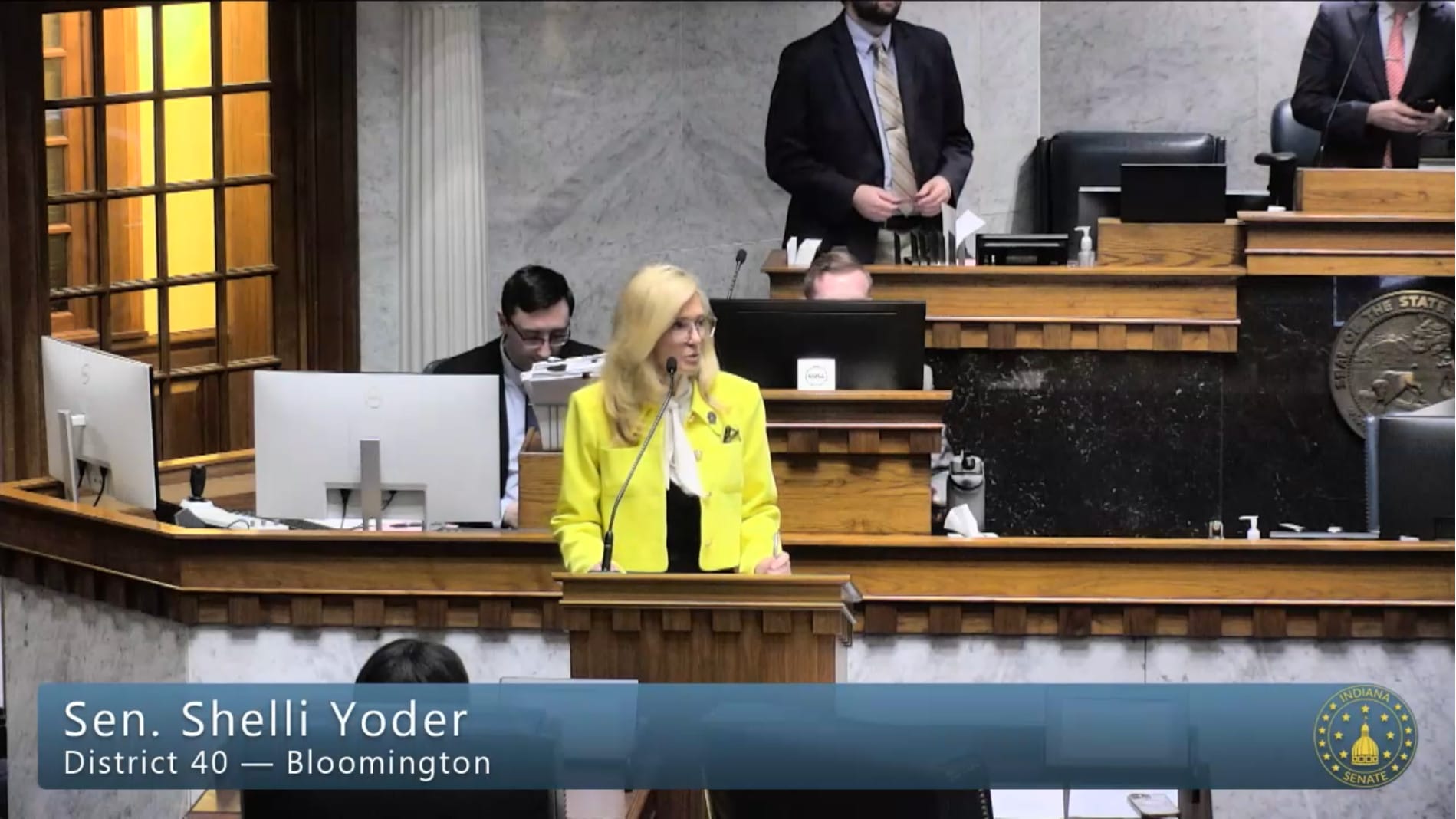
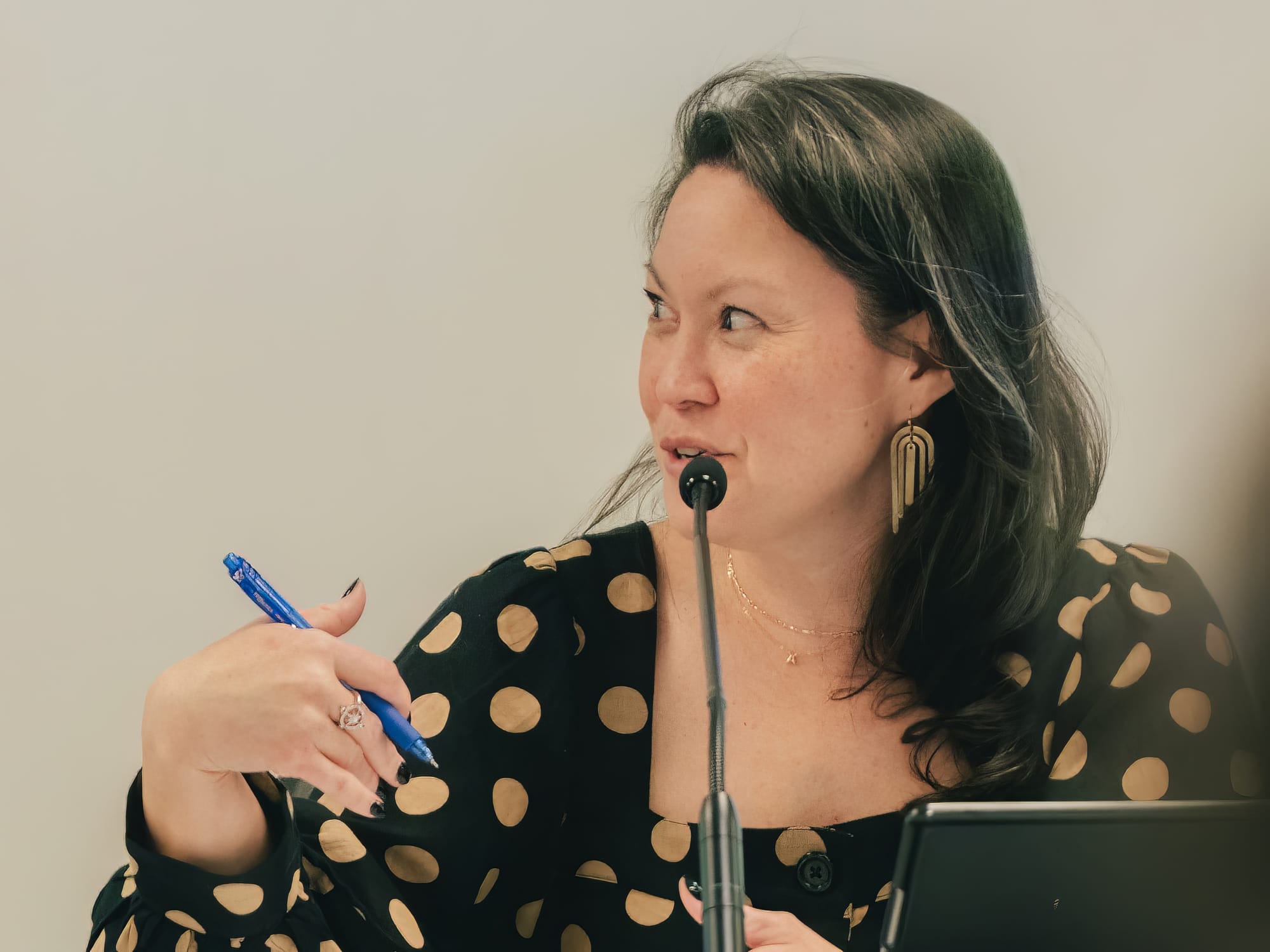
Left: Sen. Shelli Yoder speaks against SB 287 on Thursday (April 24). Right: B Square file photo of MCCSC board president April Hennessey.
School board elections in the state of Indiana now look like they will have a partisan element, even if candidates won't have to contest primary elections. SB 287 is awaiting the governor's signature, after the legislature passed the bill, as amended by the House.
[Updated on May 8, 2025: Indiana governor Mike Braun signed the bill into law on May 6.]
The Senate's action to concur with House amendments to SB 287 passed 26–24 on Thursday (April 24), with 10 Democrats and 14 Republicans voting in opposition.
The last version of the bill gives school board candidates the option to state a political party affiliation, run as an independent candidate, or not to identify with a political party. But this statement must be indicated on the ballot, unless a candidate's stated political party affiliation is challenged. The bill that passed the Senate last month , which was amended by the House, required partisan primaries for school board elections. The amended bill closely resembles HB 1230, which started in the House, but did not move forward.
In his motion on Thursday to concur with House amendments, bill author Sen. Gary Byrne, a Republican representing Senate District 47, argued that school boards are already partisan, and the bill is "an issue of transparency for voters."
During the Senate debate, proponents of the bill argued that the bill is necessary to ensure quality education for Hoosier students. Sen. Michael Young, a Republican representing District 35, said, "My gosh. The wokeness they have in these school boards. Even in Republican areas you have wokeness. If you don't believe this harms our kids, look at our scores." He said that despite Indiana's jump to sixth in the U.S. in reading proficiency, scores are too low. With this bill, he continued, "we know who has the better philosophy for our kids. … That's why I'm gonna support this bill."
Monroe County Community School Corporation (MCCSC) Board of School Trustees members Erin Wyatt (District 1), Ashley Pirani (District 3), and Aja Jester (District 7) have terms of office ending the soonest, at the end of 2026. If the governor signs the bill and it goes into law this summer, candidates for those districts will need to comply with the new requirements for their petition of nomination.
A majority of MCCSC board members already have a public affiliation with the Democratic Party, even if it's not as members of the school board. Serving as precinct chairs for the Monroe County Democratic Party are four of the seven—Erin Wyatt, Ashley Priani, Aja Jester, and April Hennessey.
Hennessey, who currently serves as board president, told The B Square that she does not believe school board governance should be partisan. She views the bill as an attempt to allow political organizations to "flood school board races with dollars," which isn't possible in a nonpartisan election. She says SB 287 allows entities looking to increase the number of charter schools or school choice voucher programs to put people on the boards who can advance that agenda.
Hennessey said the current, nonpartisan nature of school boards lets her have conversations with people about issues that are important for their children. She said, "And I think [SB 287] is going to erase those kinds of conversations because you're automatically going to enter into it as a Democrat or Republican. … It'll be more political from the start, and [people] may never take the time to come to the table with an open mind about what you might have to offer."
She added that while it could be helpful for voters to know what political parties school board candidates are associated with, "it doesn't matter, because if they're doing the things that are in the best interest of your students, then does it matter how they vote? … My argument would be no." While Hennessey doesn't know what her plans with MCCSC are when her term ends in 2028, she thinks that the bill could have a negative impact on some people's decision to run.
Critics of SB 287 in the Statehouse agreed with Hennessey's sentiments. Sen. Shelli Yoder, a Democrat whose district includes large parts of Bloomington and Monroe County, said after the vote during a point of personal privilege on the Senate floor, "That discussion and that vote was truly disappointing." She said the bill won't support schools or improve educational outcomes. "Instead, this bill directly injects politics into one place that absolutely does not belong, and that is in our public schools," she continued.
Yoder said, "And we heard the quiet part out loud. This bill is about fear of difference. Fear of diversity. Fear of diversity of thought. Fear of challenging the status quo. Why else would we turn school board elections into party primaries? To push out the independent thinker. … To silence the community member who doesn't check the right partisan box, but knows how to lead with expertise, experience, and integrity. 287 is pushing out those potential candidates. Partisan school board races won't bring people together. They will tear communities apart."
Sens. Fady Qaddoura of District 30, J.D. Ford of District 29, and Andrea Hunley of District 46 also expressed similar sentiments in opposition to the bill, following the narrow passage of the bill.

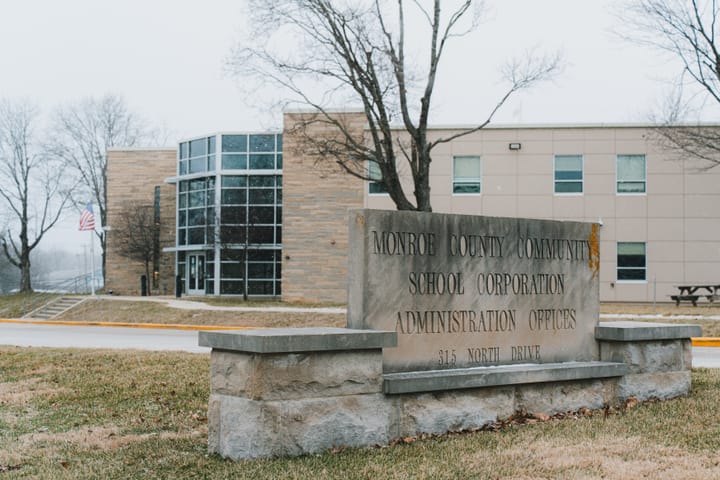
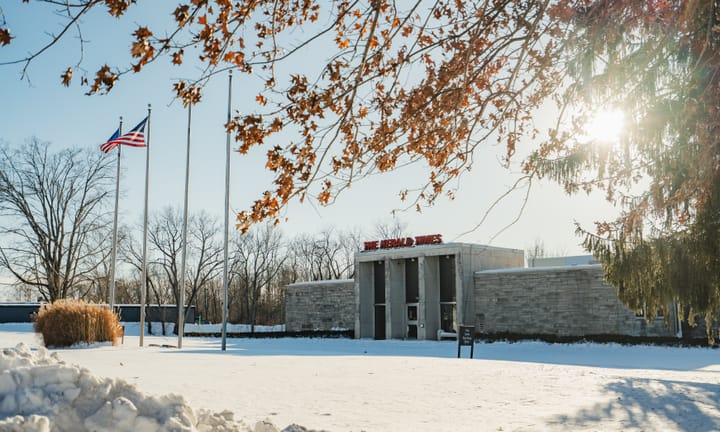
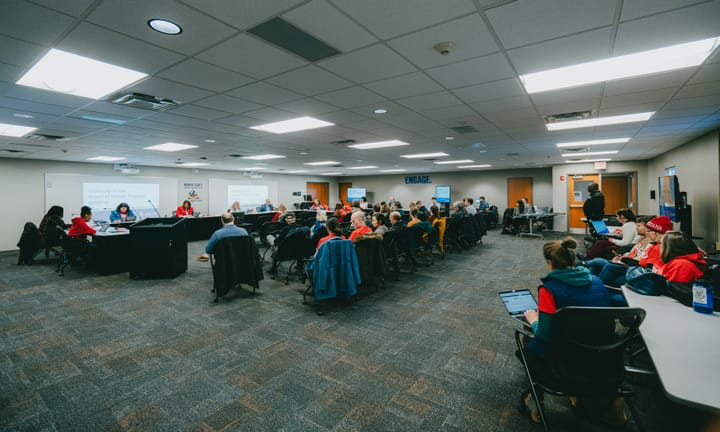
Comments ()